Archive for October 11th, 2018
October 11th, 2018 by Global Down Syndrome Foundation
October 11th, 2018 by Global Down Syndrome Foundation

On September 26, 2018, 200 scientists met to discuss their newest important research on trisomy 21 at the Crnic Institute for Down Syndrome’s 8th Annual Down Syndrome Symposium.
Below, find a short, simple breakdown of the latest Down syndrome research. (And you don’t have to be a scientist to get it!) Click on the scientist’s bio for more detailed information on their work.
Your Science Recap:
|

Keynote Speaker Roger Reeves, PhD
Professor, John Hopkins University School of Medicine
Department of Physiology
Approaches to Down syndrome research
Mouse models have been a game-changer for Down syndrome research. Reeves talked about the advantages and disadvantages of the various mouse models of trisomy 21, on how they can advance our understanding of the organismal impacts of the extra chromosome. |
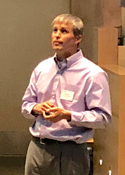
Niklaus Mueller, PhD
Assistant Research Professor, Ophthalmology, CU AMC
Ocular Lens in Down Syndrome
70% of children with Down syndrome have vision issues. Mueller’s team studies how trisomy 21 impacts on the development of the ocular lens in people with Down syndrome causes. One goal of this research is to better understand the higher risk of visual impairments and potentially cure conditions like cataracts. |
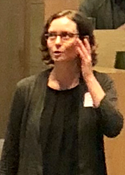
Stephanie Moon, PhD
Post-doctoral researcher
Biochemistry, CU Boulder
White Matter Loss in the Brain
As individuals with Down syndrome age, there is distinct degenerative alterations in the so called ‘white matter’ in the brain. Moon’s team studies a condition known as Vanishing White Matter disease (VWMD) to see if there are common mechanisms between Down syndrome and VWMD. |
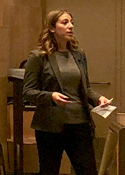
Rani Powers, PhD
Graduate student
Pharmacology, CU AMC
Human Trisome Project
Powers work on The Human Trisome Project, which studies why people with Down syndrome are protected from some medical conditions, such as solid tumor cancers, while highly predisposed to others, such Alzheimer’s disease. Powers’ specific research focuses on metabolic changes causes by the extra chromosome. |
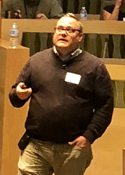
Lee Reinhardt, PhD
Assistant Professor
Biomedical Research, NJ Health
Respiratory Asthma & Allergy
The recurrent respiratory wheezing common in people with Down syndrome is often misdiagnosed as asthma. In fact, people with Down syndrome are naturally protected from certain forms of allergies. Dr. Reinhardt is investigating the mechanisms by which trisomy 21 alters the immune system toward an state that decreases the likelihood of developing allergies. |
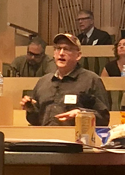
Charles Hoeffer, PhD
Associate Professor
IBG, CU Boulder
Sleep in Down syndrome
Hoeffer and his lab study how overexpressed genes in chromosome 21 affect various neurological processes in Down syndrome. Many people with Down syndrome have difficulty sleeping, which is often associated with obstructive sleep apnea. To learn more about this, Dr. Hoeffer’s team employed animals models of Down syndrome to perform deep analysis of sleep patterns, leading to discovery of sleep alterations distinct for obstructive sleep apnea. |

Huntington Potter, PhD
Kurt and Edith von Kaulla Professor
Neurology, Crnic Institute, CU AMC
Alzheimer’s disease & Down syndrome
100% of people with Down syndrome will develop the brain pathology of Alzheimer’s disease by the time they are 40 years old, but the likelihood of developing dementia is highly variable. Studying the mechanistic relationship between the two conditions, Potter and his team are hard at work to find a cure. Dr. Potter’s team is currently completing clinical trials for an immune-modulatory molecule that effectively reverse Alzheimer’s pathology in mouse models. |
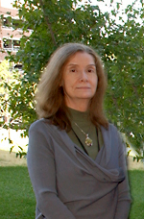
Katheleen Gardiner, PhD
Research Professor
Pediatrics, Crnic Institute, CU AMC
Learning and Memory in Down syndrome
Gardiner and her lab employ mouse models to understand the mechanisms leading to cognitive impairment in Down syndrome, with an special emphasis on the impact of age, sex, and genetic background. |
To learn more about the work the scientists at the Crnic Institute are doing, visit here.
To participate in the Crnic Institute’s Human Trisome Project, visit here.










 Experience our inspirational and groundbreaking videos and photos. Our children and self-advocates are beautiful AND brilliant!
Experience our inspirational and groundbreaking videos and photos. Our children and self-advocates are beautiful AND brilliant! Make sure your local Representatives are on the Congressional Down Syndrome Task Force.
Make sure your local Representatives are on the Congressional Down Syndrome Task Force.